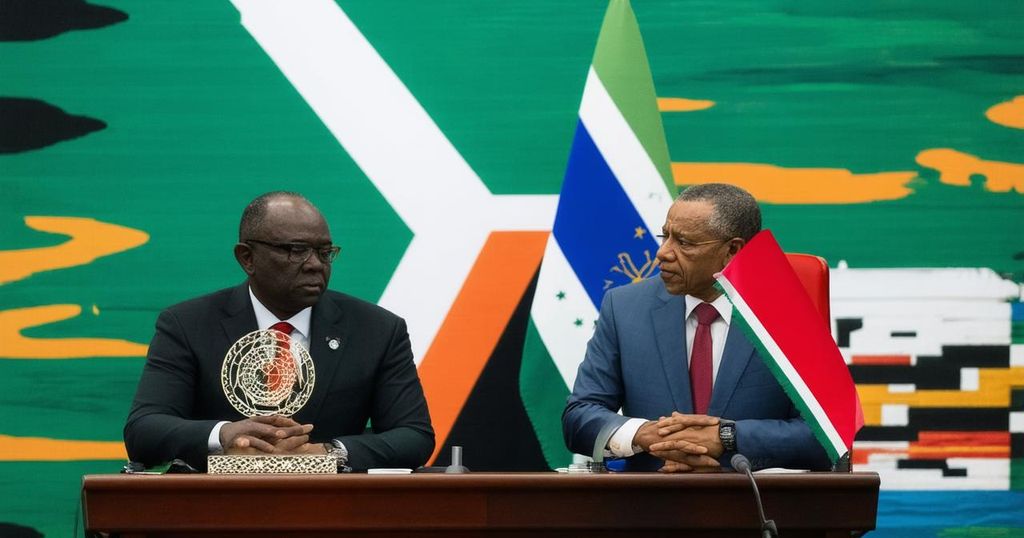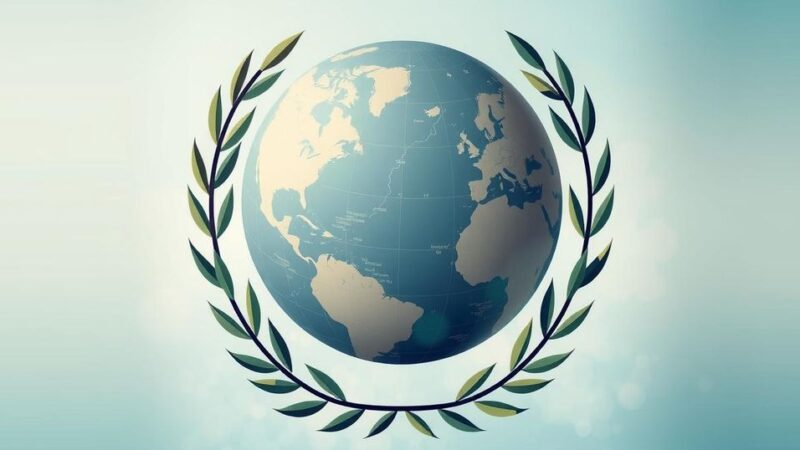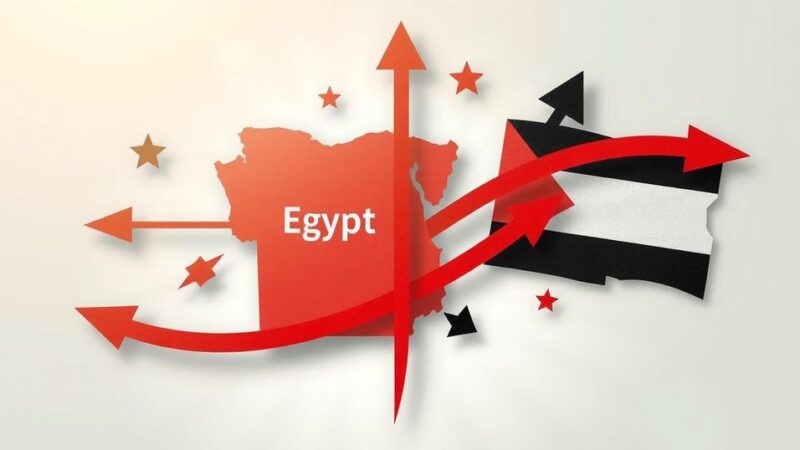South Africa has declared its opposition to Morocco’s potential membership in BRICS during the ongoing summit in Russia. Officials expressed concerns regarding regional influence and historical tensions over the Western Sahara issue. South Africa’s stance contrasts with China’s recent invitation to Morocco for cooperation, indicating the complex dynamics within the BRICS alliance amidst discussions of expansion and global economic collaboration.
The 16th BRICS summit commenced on October 22 in Kazan, Russia, where South Africa has articulated its opposition to Morocco’s potential accession to the economic bloc. The summit, scheduled to conclude on October 24, is attended by leaders from Brazil, Russia, India, China, and South Africa (BRICS), focusing on significant global issues with discussions on the group’s expansion notably prominent. According to Bloomberg, South African officials have firmly rejected any initiatives aimed at including Morocco or Nigeria in BRICS, voicing concerns that such inclusions could undermine South Africa’s influence within the alliance. This stance was confirmed by unnamed South African officials who provided remarks to the media under the condition of anonymity, underscoring the sensitivity surrounding the issue. Tensions have historically existed between South Africa and Morocco, particularly related to the conflict over Western Sahara. In April of the previous year, South Africa successfully managed to place the Western Sahara issue on the agenda for a BRICS deputy foreign ministers’ meeting. This contention escalated in August, when South Africa invited Brahim Ghali, the leader of the Polisario Front, to a BRICS/Africa meeting in Johannesburg, shortly after Morocco declined South Africa’s invitation to participate, citing deteriorating diplomatic relations. Morocco has proclaimed that the invitation was a unilateral action by South Africa, denying any application for BRICS membership amid claims of interest. Meanwhile, the BRICS group, established in 2009, has recently expanded its membership to include countries such as Iran, the United Arab Emirates, Ethiopia, and Egypt, commencing early 2024. This expansion has significantly enhanced the bloc’s economic power, amalgamating major energy producers with prominent consumers from developing regions. Additionally, Saudi Arabia has been announced as a prospective member, although a final decision on its membership remains pending. As the current holder of the BRICS presidency, Russia aims to utilize this summit to demonstrate its global stature, despite the international isolation it faces due to its ongoing military conflict in Ukraine. Kremlin aide Yuri Ushakov disclosed that the summit is the largest gathering of world leaders in Russia since the onset of the Ukraine invasion, with 36 national delegations and six international organizations in attendance. Contrasting South Africa’s firm stance, China has adopted a different diplomatic approach. In September, Morocco received an invitation to participate in the upcoming BRICS Forum 2024 in Xiamen, China, which will center on partnership initiatives for the new industrial revolution. Morocco’s Minister of Industry and Commerce, Ryad Mezzour, represented the kingdom at this event, which is intended to promote collaboration among BRICS nations. This invitation from China illustrates the nuanced relationships within the BRICS alliance, as South Africa endeavors to protect its regional influence and block Morocco’s entry, whilst China appears willing to engage Morocco on economic fronts. Discussions surrounding the future and potential further expansion of BRICS are anticipated to dominate the agenda as the summit progresses, with many countries, including Malaysia, Thailand, and Turkiye, expressing interest in joining the bloc. Thus, balancing varying geopolitical interests while fostering economic cooperation and development remains a critical challenge for BRICS.
The BRICS group, an abbreviation for Brazil, Russia, India, China, and South Africa, was formed as a cooperative umbrella to address mutual economic interests and promote collaboration among emerging economies. Recent expansions have included several noteworthy nations, enhancing BRICS’ global economic influence. However, the internal dynamics, particularly concerning regional politics and historical tensions, have continued to influence membership debates, especially regarding Morocco’s relationship with South Africa over the Western Sahara issue. The current summit marks a significant moment for addressing these dynamics, potentially reshaping future membership and influence within the group.
In summary, South Africa’s staunch opposition to Morocco’s entry into BRICS highlights the intricate geopolitical tensions that pervade the organization, particularly relating to the long-standing Western Sahara dispute. While South Africa seeks to solidify its influence and protect its interests, China’s willingness to engage with Morocco illustrates a different approach within BRICS. As aspirations for further expansion loom, the challenge remains to harmonize individual national interests with collective economic cooperation.
Original Source: www.moroccoworldnews.com






